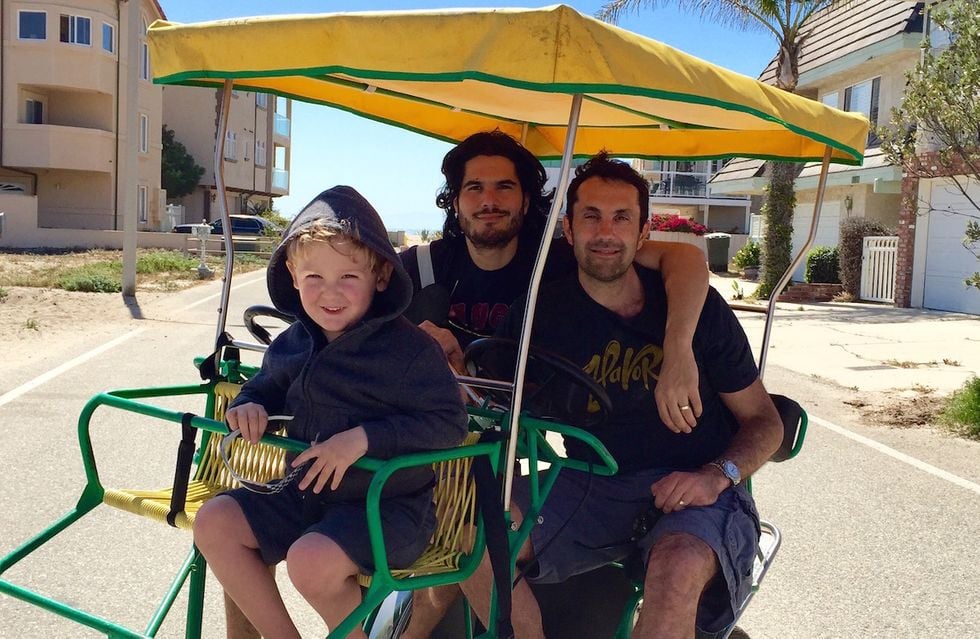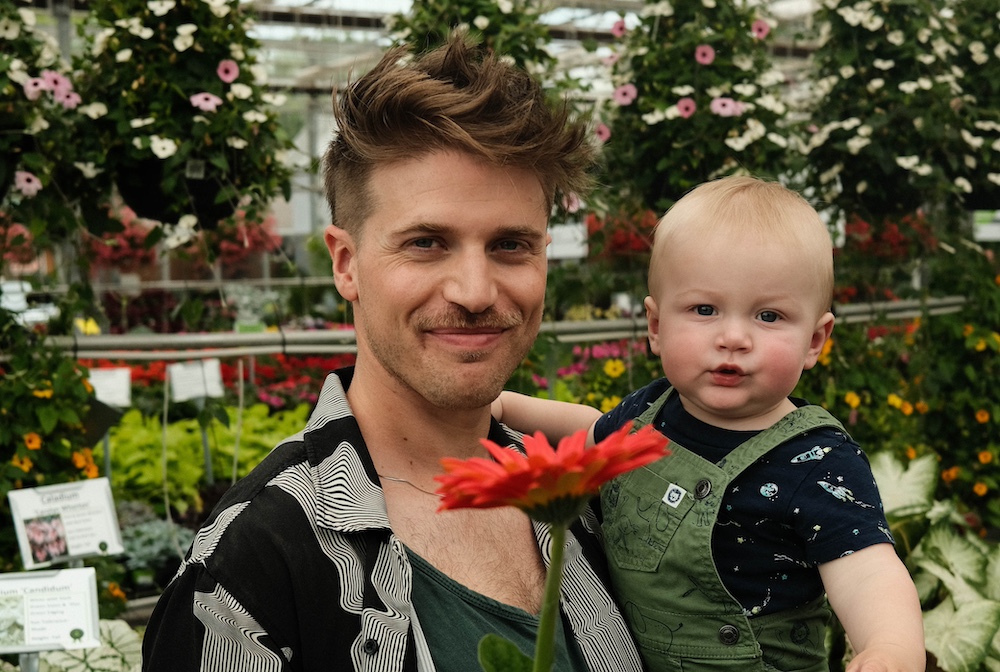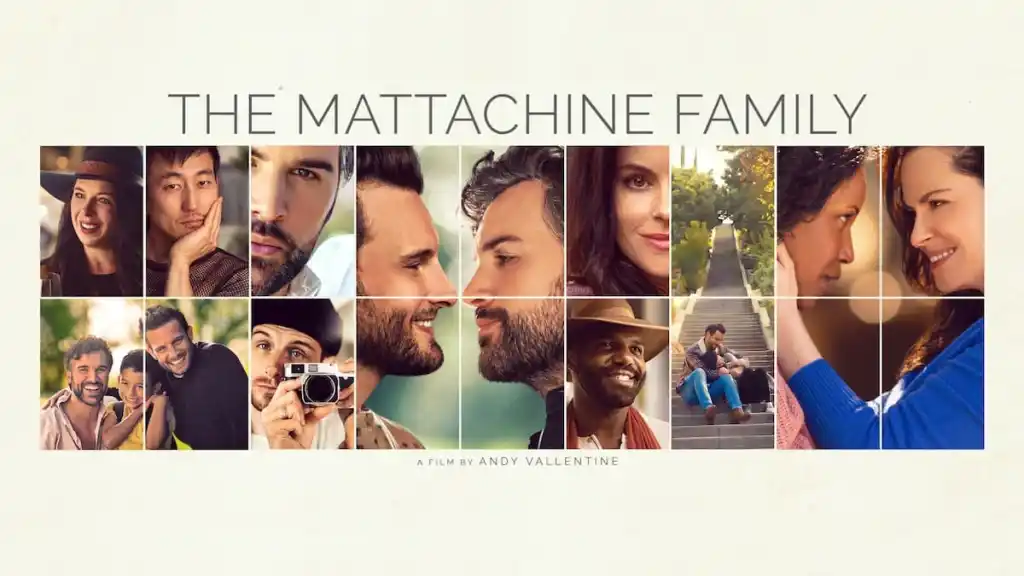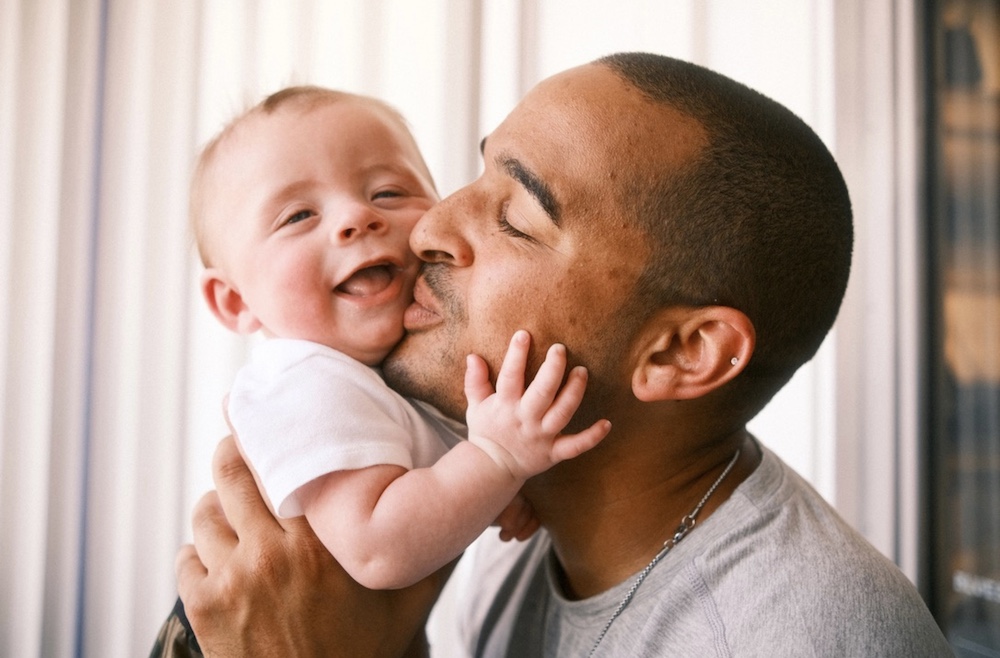How Two Dads Almost Fell Into The L.A. Parent Trap
The other day a fellow parent asked which kindergarten we were sending our son Max to. I told him that Max would probably attend our neighborhood public school. I’ll never forget the look he gave me. It was 50% disgust, 40% sympathy, and 10% “Wow, have you been working out?”
I wasn’t familiar with this particular look. The awkward “Which school?” conversation is new to me. When I was young there was one neighborhood public school that all kids attended. There were no charter schools. No magnets. No lotteries. No education consultants. And private schools were reserved for the likes of Joey “Whoa” Lawrence. (He attended a private prep school a few minutes from my house, and yes, he always had great hair.) But that was the suburbs of Philadelphia, 3,000 miles away from the hyper-critical, condescending, snarky, benignly racist, image-obsessed celebrity mecca known as Los Angeles. I was beginning to learn how different things are here. Painfully, eye-openingly different.
Like most parents, my husband Alex and I just want to find a safe, welcoming school where Max can thrive socially and academically. So naturally the first stop on our tour would be our local public elementary school.
It was easy to see why many referred to this little school as a hidden gem. What a charming, colorful and vibrant community-oriented school. We enjoyed our time with the teachers, respected what the principal had to say and loved the PTA mom who helped guide our tour. Everyone seemed passionate and dedicated to maintaining the school’s positive reputation. Even the PTA mom pointed out how happy she was to see two dads touring the campus. She said, in her experience, gay parents tend to be the most involved parents, fully committed to participate in their children’s education.
While our search was far from complete, it felt good to have a strong option on the shortlist. What didn’t feel good was the not-so-subtle negativity that started to rear its ugly head. We received several unsolicited opinions from meddlesome neighborhood parents.
“Do you realize that school is only 30% white?”
“More than half the students are eligible for subsidized lunches; what does that tell you?”
“Don’t you want Max to go to a school where he looks like the other children?”
And my personal favorite…
“That school is north of The Boulevard.”
These judgments were so (to borrow from Madonna) reductive and extremely offensive.
Why wasn’t anyone commenting on the school’s high test scores or 9 out of 10 rating? There was nothing said about how few kids there were per class or their diversified academic program. Much of what we heard from other school shoppers in the community was plagued with shallow, prejudiced undertones. Furthermore, I felt like people were insinuating that we were somehow doing less for our child by even considering our public school. We started to think that the biggest problem regarding the Los Angeles Unified School District isn’t necessarily the schools themselves, but rather gossipy and impressionable know-it-all parents who have undeservingly become neighborhood thought leaders and tastemakers. If this is how they react to minorities, I began to fear how their children would react to a classmate with two dads. After all, children tend to repeat the behaviors and patterns of their parents.
We wondered if all these so called “bad schools” were really bad, or if their reputations had been manifested by snobby, entitled Stepford parents who clearly fear interaction with people who don’t look like them or their children. I felt like these people were missing the point. As I see it, students who attend schools with a diverse population can develop an understanding of perspectives of children from different backgrounds and learn to function in a multicultural, multiethnic environment. What some may deem as a negative, I believe creates a positive environment where students and teachers learn respect and tolerance.
Around this time, several friends of ours referred us to a lady who could offer some compassionate guidance as we weighed all of our school options. She’s basically an L.A.-based school scout for hire. We didn’t know people like this existed, even though we live in a city where everything’s for sale. Nevertheless, we thought it would be worth a try. Armed with years of professional knowledge of Los Angeles area schools, she was able to clearly map out all the options that would be best for our family. We ruled out private schools due to their exorbitant costs, literally more than my college tuition. (Unless Whitney’s returning from the grave to sing nursery rhymes with the kids, I’m just not seeing the value.) Among the remaining options of interest were charter schools.
Charter schools receive public funding but operate independently. Oftentimes these are the result of parents, educators and politicians partnering to establish more creative curriculums. In Los Angeles alone there are more than 250 charter schools, but as we were quick to learn, that’s not nearly enough. Anyone who’s seen the documentary “Waiting for Superman” will be familiar with the admissions process at a charter school. By law, if a school has more applicants than spaces, it must hold a public lottery. In other words, it’s totally out of your control and there are no guarantees you’ll make it on the list.
We were determined to give charter schools our best shot. We entered our name into three lotteries. We waited and waited and waited… and then finally heard back from each of the schools via email. Unfortunately we were unable to secure a spot, so on the waitlist we went. Once again though, we were witness to everyone’s unsolicited opinions. I liken charter schools to brand names, badges of honor; they’re synonymous with quality and power. And therefore, the parents of those lucky enough to get in to the most popular charter schools tend to feel and exude a sense of superiority and entitlement. Ironic since their spot was a product of dumb luck, not money or status.
So here we are, just a few months shy of the first day of school. We have yet to make a final decision of where Max will go. We’ve heard everyone and their mother’s opinions, toured public schools, charter schools, lost out on lotteries and even hired an L.A. school whisperer — and through it all I think we might have lost sight of what’s important. And we came pretty close to falling into the L.A. trap.
Where people choose to send their child to school is a loaded topic that can define a parent’s values, income and worldview. But we’re not going to let it define us. We’re not concerned with what it says about us as parents. We’re more concerned with staying involved in our son’s education every step of the way, making sure he’s exposed to good people of every culture, race and creed. It’s the only way he’ll thrive in a diverse community that reflects our modern world.
That’s what matters to us. Worrying about what our next-door neighbors think? Not so much.
To help find your path to fatherhood through gay adoption, surrogacy or foster care check out the GWK Academy.






